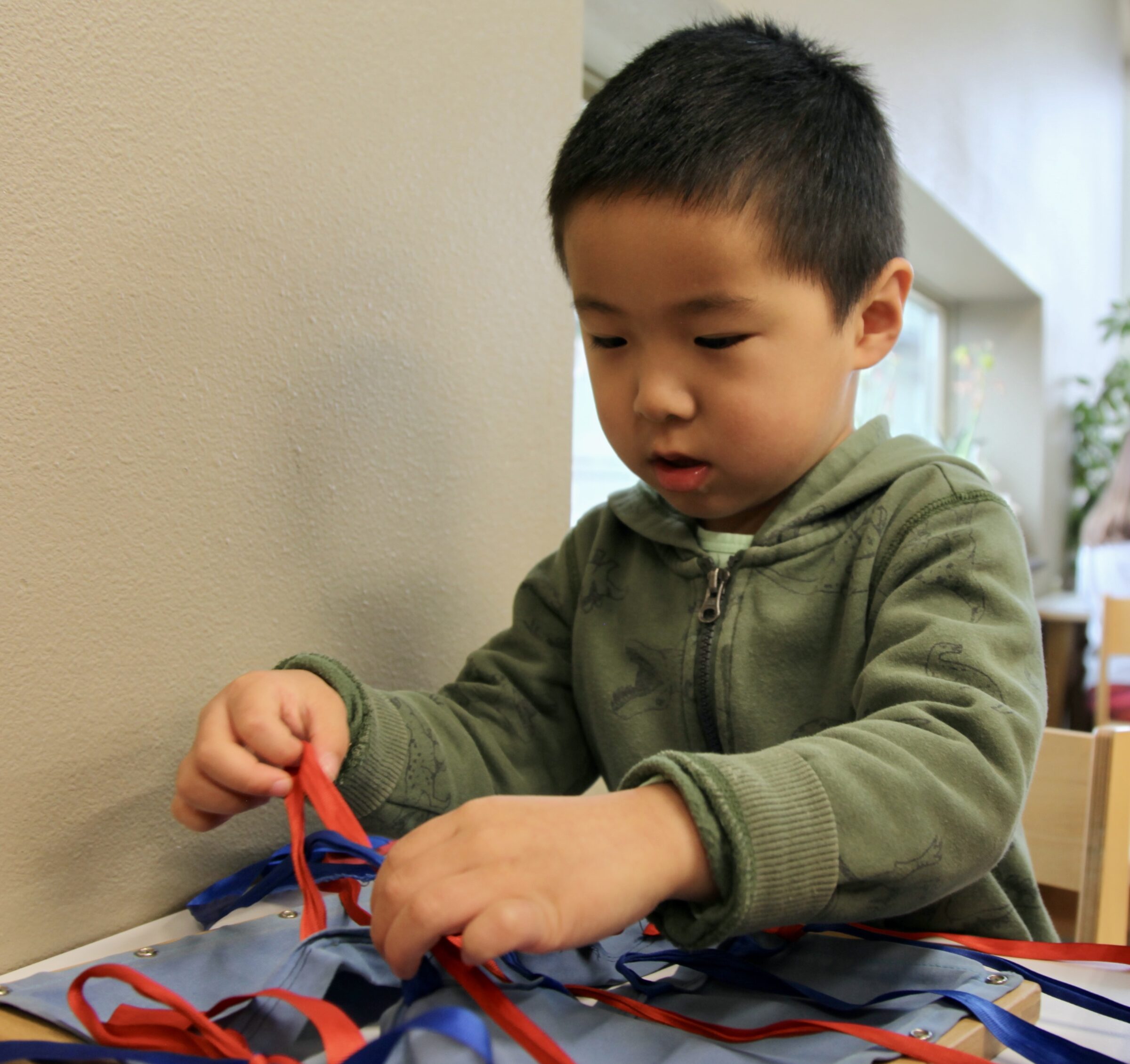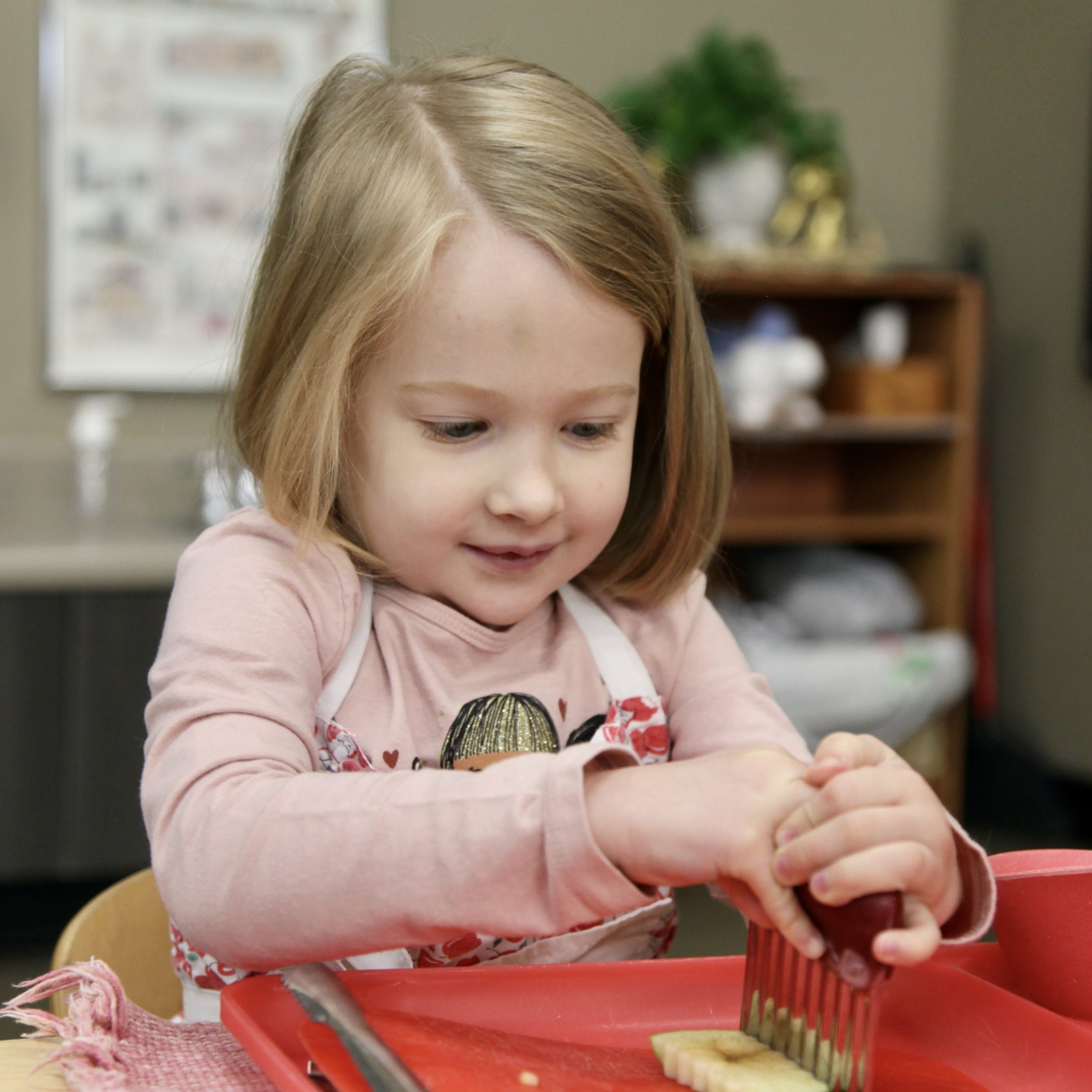Academics in the Kitchen
Thoughts & Reflections
A question we’re asked so frequently is what can families do at home to support the work children are doing in the classroom. It’s such a natural one. We want to set our children up for success, we want to be involved in their education, and if there are areas we can support now to avoid challenges later, we’re all in!
One of our most common suggestions might seem a bit strange. It’s not hiring a tutor, or buying more books, or flashcards, or any other more academic-appearing things. It’s something families have done throughout history, probably even before a child came to school. It’s fun and might not look very academic, but we’d say it’s incredibly supportive of a child’s education.
Cook and bake together.
But it’s just chocolate chip cookies, or ratatouille, or Saturday morning pancakes. Isn’t there something more important, more valuable we could be doing together?
The skills a child is building in the kitchen have a direct correlation to academics, even if they’re not in a Montessori classroom, where we have activities like scrubbing a table and arranging flowers.
When we follow a recipe, we’re demonstrating how important and useful literacy is, how we can use reading as a tool. We’re following a logical sequence, which prepares for science. The way different compounds interact is chemistry in-action.

We’re using our senses, tasting a bit of flour that fell on our hand while scooping into the mixer, feeling the tiny grains of salt and sugar between our fingers, and though they look similar can we tell them apart without tasting?
The math in cooking and baking is pretty phenomenal. We can measure 125 grams of flour on a scale, or count 16 ¼ cups. We can learn how many teaspoons in a tablespoon, set the oven to 350 degrees, and how many is three dozen cookies?
Speaking of cookies, there’s spatial reasoning happening when we use cookie cutters. How can I adjust this heart to fit just one more? It looks like I can’t fit any more, so we’ll squish the dough back together, roll it out, and all those holes combine to form a clean sheet.
There are internal skills being fostered at the same time. Cooking and baking require patience. A loaf of bread takes hours, and nothing will ever taste so delicious as the slice you helped make from a handful of ingredients. We can’t just do the fun part, the sneaking a lick of cake batter or the breaking eggs for quiche, we also need to do the less fun parts — the preparation and the cleaning up. Some parts of school, of our jobs, of life, will be fun, and some parts will be less fun, but it’s all important, and it’s all good.
Any experienced baker or chef will say, mistakes must be made, and they’re the best learning experience. You will not mistake 1T for 1t again after your banana bread turns out not quite right. Maybe you misread your recipe and thought you had baking powder but all you had was baking soda but it’s okay cause you also have cream of tartar. It’s okay to be disappointed we burned dinner. Nothing is irredeemable.
“Any experienced baker or chef will say, mistakes must be made, and they’re the best learning experience.”
Finally, these are life skills! A child who helped break eggs at two, scramble eggs at three, and is on their way to the perfect omelette at five won’t feel overwhelmed living on their own one day. We’re more interested in trying kohlrabi or halibut or blue cheese when we’ve had a hand in the chopping and braising and presentation. We can start to identify food preferences — maybe I don’t care for eggplant parmesan but I’ll eat baba ganoush with a spoon.
Though it might feel like just having fun together, or passing on a tradition, or simply what we do as a family, these truly are huge, important skills, uniquely suited to the home environment, and some of the best preparation not just for a child’s academic career, but for life.
Written by:
Charlotte Snyder



